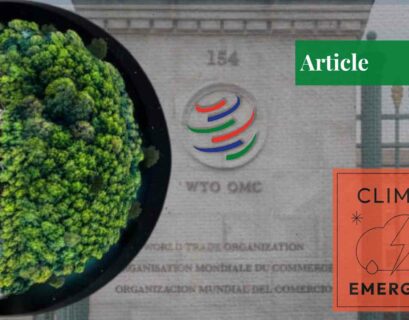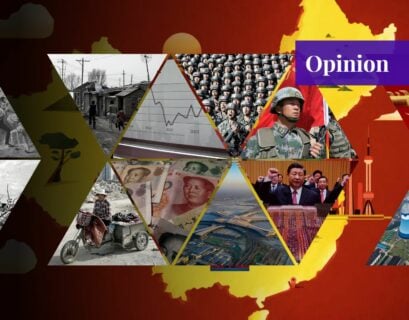Hammad Khan is a freelance writer. He has a bachelor's degree in political science from the University of Peshawar.
Introduction
The theory of Marxism has been influential in global politics since its introduction by Karl Marx in analyzing International Relations. Even after 150 years, ideology still plays a significant role in social sciences. It seems to be the only IR theory named after the person who introduced it. The Marxist international relations theory is one of the most important and lively approaches to its study.
It differs from conventional theories of international relations such as realism and neo-realism in that it is critical of the current state of affairs in the international system. The term has also emerged as a powerful and dominant style of social thought, with both critical and liberator intentions or aspirations.
It simply means that, as a critical social theory, it is concerned with not only elucidating the laws and peculiarities of capitalist globalisation in terms of global inequalities, class conflicts, exploitation of spheres of power and production, alienation and estrangement, but also with replacing them with a form of universal cooperation and emancipation that promotes freedom and peace for all peoples.
As an essential theory of international relations, Marxism offers an alternative understanding of IR, particularly of the realist theorization of international relations. Marxism, as it is well known, is based on the philosophical, economic and political work of Karl Marx. What primarily concerned Karl Marx’s interest in international relations was the industrial revolution that tipped in his period, which he thought would create class-based societies and result in inevitable conflict.
To see how relevant the Marxist international relations theory is in analyzing contemporary global politics, one could see its evolution from classical Marxism to Neo-Marxism, which is all about analyzing international relations at the global level.1 Neo-Marxism broadly analyses the social and cultural influences that perpetuate the working class’s suffering from domestic to global level and addresses issues such as exploitation, domination, and marginalisation.
These issues remain consequential in international politics in the contemporary world. In other words, classical Marxism puts more emphasis on states as the level of the analysis, which is more of a domestic approach, while Neo-Marxism, a contemporary concept, focuses more on a relationship between rich and poor countries, taking the level of analysis to a global level.
The Fundamentals of Marxist International Relations Theory
Quoting Adrienne Rich, the theory is “the seeing of patterns, showing the forest as well as the trees the rain cloud and returns to earth over and over. But if it doesn’t smell of the earth, it isn’t good for the earth”.2 The Marxist concepts are all about the common goal in a social system: a greater good for humankind and its ambient. Understanding the Marxist approach to international relations, we must go through the origin and functioning of capitalism at the domestic and international levels.
Marxist concept asserts that the capitalist mode of production and the modern sovereign state-system are two sides of the same coin. Marx thought of these two elements as inevitably interdependent. The concepts of Marxism approach international relations focusing more on economic-sector interactions in the political field rather than human interaction, which deals with governance and policy problems.
Therefore, it is also associated with the international political economy (IPE), an IR branch analyzing how the political and economic sectors of the world correlate to each other. Marxist ideology also argues that unequal distribution of wealth will make the international order unstable, enabling the poor to rise and overthrow the system that kept them impoverished. To relate to this, the contemporary world is divided into North and South, the former more wealthy than the latter.
In modern global politics, the conditioning of the individuals would make sure whether they can attain the required potential or not, which the capitalist world system is currently providing. In a capitalist system, an individual is either positioned at the “core”, the dominant structure of the two-tier social system, or at the “periphery”, which is less developed.
This two-tier system leads to the work of Lenin, “world system theory”, in which Lenin said that “imperialism is the highest stage of capitalism.” He also argued that it was imperialism that created the two-tier social system. Wallerstein further extended the view of Lenin regarding “world system theory” and classified the world into three distinguished levels of analysis: the core, the semi-periphery, and the periphery.3
The periphery supplies the core and semi-periphery with inexpensive labour and raw materials; the core and semi-periphery can create high-profit consumer items for themselves and the semi-periphery and periphery markets. A peripheral region is always required by capitalism to supply the means for the core to maintain a high level of consumption and security.
As a result, dependence and inequality are inextricably linked to capitalism and cannot be eliminated. The world system theory and the dependency theory are largely applicable to the modern world, where the poor are extensively dependent upon rich countries.
Approaching International Relations
From the perspective of the global South, the Marxist approach to the study of international relations offers a central theoretical vantage point for understanding the practice of imperialism and the character of capitalism and its influence on the developing and less-developed world.
Furthermore, it appears to offer a vehement critique of existing theories of international relations, based on their assumed premise of states’ supremacy as important actors in the world system as well as upholding the status quo in the global system by legitimatizing the preexisting social and political structures of dominance, exploitation, exclusion, and marginalization.
Marxism actually surfaced during the industrial revolution period in the 19th century. It basically emphasizes the critique of the economic and political systems of Europe in the form of the Communist Manifesto published by Karl Marx and industrialist Fredrick Engels. The importance of class struggle and financial linkages in Marxism above inter-state rivalry politics has significant implications for international relations.4
Marx asserts that the bourgeois class uses the state to mask their socio-economic interest and emphasizes that this is exactly the fundamental of the capitalist world system. The bourgeois class uses the language of nationalism to inspire the proliferates to defend their bourgeois masters. This concept of Marxism analysis that today’s world is transformed after the evolution of the bourgeois class becoming the elites of the social structure, which is the most dominant position.
In today’s modern world, international capital and other rich resources belong to the rich countries, and the economic activity in the world tends to reinforce the dominant position of the core, leaving peripheral and semi-peripheral states to deal with the few remaining sources of capital. The approach of Marxism in dealing with international relations is based broadly on economic or materialistic determination. The political and social outcomes are determined through the economic lens.
The modern world essentially functions on soft power, which means economic dominance, putting the economy at the core of contemporary global politics. The uneven economic system in the modern world is also reflected in the uneven distribution of political and social power in the international community. Every other factor, including politics, culture, education, or religion, remains at the superstructural level dependent on economic factors (the base).
Marxism even criticizes the democratic form of government, considered the world’s best form of government in the contemporary world.5 According to the Marxist international relations theory, democracy strengthens the bourgeois class, expressing it satirically that the “of the people, by the people, and for the people” is instead “of the bourgeois, by the bourgeois, and for the bourgeois”. Also, it says that the modern democratic system further strengthens the capitalist economy.
Further analysis unfolds that the concept of the free market and ensuring international access to resources and markets supports the capitalist economies worldwide. In peripheral states, capitalist economies are either neutralized through coercion, or their loyalties are bought in the shape of goods and services to curb their nationalism, proletariat’s rebellious tendencies.
Although Marxism, likewise institutional liberalism, accepts the participation of the international organizations in the form of MNCs and other organizations, Marxists believe that the primary beneficiaries of this participation are the capitalist block. Marxists assume that these international organizations have little capacity to improve the impoverished standards of the proletarians in international societies.
In Contemporary Global Politics
Although many critiques have criticised the Marxist international relations theory on several grounds, it is still the most coherent, ambitious, systematic and influential political philosophy or approach to studying contemporary global politics. It has evolved substantially during the last few decades. We already know that the modern international political system is based on capitalist ideology, and Marxist IR theory surfaced as a critique of the origin and functioning of the capitalist economy.
This assures that the Marxist international relations theory has a significant role in analyzing contemporary world politics. The classical Marxist concept and its understanding have provided substantial ground to the contemporary scholars working within the structuralist economic domain by virtue of his emphasis on exploitation, capitalist development and expansion, how change occurs and understanding the big picture (analysis at the global level) rather than focusing on the individual units.
Neo-Marxism
Neo-Marxism theory developed in the second half of the 20th century within the classical teachings of Marxism. Neo-Marxism is not a single concept; it incorporates other schools of thought and approaches to world politics, such as world-system theory, dependency theory, Gramscian ideas of hegemony, and critical theory. These concepts can be found in the writings of Kant, Hagel and other modern Marxist thinkers.
Neo-Marxism basically evolved in an attempt to address the questions of the political and cultural realm along with the economic determination, which was not the case in the classical Marxist international relations theory. However, a neo-Marxist is substantially concerned with culture, ideology, the role of the capitalist states, politics of knowledge, nature of authoritarianism, and most importantly, the emancipation of the contemporary world.6
If we think of contemporary global politics, the capitalist block has its feet dug in the international system. To explain why they prospered and the socialist regime declined, one must see it through the concept of hegemony that an Italian Marxist thinker introduced. Hegemony has functioned in the international political system through coercion and subtle means.
The subtle way of functioning hegemony is to acquire the consent of the oppressor to operate the authoritative capitalist regime. The consent of the oppressor is gained through several means, including the educational system, religious teachings and mass media. These means serve as the repressive and exploitative structures that substantiate the capitalist social system.
Through hegemony, political, cultural and moral views and values are imbued in the whole society and later accepted by the oppressed class. Such is the case in contemporary global politics, where mass media, educational institutions, religion, and cultural values are used to navigate capitalist propaganda around the world and acquire the concept of the oppressed class.
Critical Theory
Critical theory has contributed significantly to analyzing international relations in the contemporary world. The critical theory goes beyond the idea of objective reality, as according to the classical Marxist approach, its boundaries were taken for granted. While analyzing international relations, the critical international theory emphasises the formation, sustenance and transformation of the boundaries of the communities.
The significant role of the critical theory in the modern world is not to take narrow dynamics in analyzing international relations but rather broadly grasp the actual units of society such as freedom, equality, and justice across the globe.7 The concept asserts on establishing cosmopolitan arrangement.
In contemporary global politics, where ethnicities and cultures are marginalized due to their nature of being non-citizens, critical international theory suggests rethinking the state’s role and opening up possibilities for idealizing international politics in a more progressive manner. In the modern world, people suffering from international and regional conflicts, climate change, or lack of opportunities flee to other countries and are named economic migrants.
Their status of being migrant restrict them from availing the resources and opportunities that can be utilized. Marxism refers to migrant policies around the world and asks international hegemony to reconsider the contemporary meaning of migrants. Marxist argues that such policies lead to blurring the social relations and the movement of the people, and the creation of borders. Consequently, migrants are conserved with certain qualities that make them a lesser class people compared to the native people, leading to further racial and social inequalities.
The Case of International Organizations
Third world countries or the peripheral states have predominantly started to engage with international organisations in an attempt to improve their declining economy.8 These organisations are either in the shape of International Monetary Funds (IMF), World Trade Organizations (WTO), World Bank, or MNCs and FDIs. All of these organisations consequentially developed due to the capitalist regime functioning in the contemporary world system.
The peripheral economies are monitored under the lens of these organisations, and the host countries are made to rely heavily on them. As an outcome, these developing or underdeveloped countries significantly depend on the international capital, which is then imported, hitting back the country’s local development because the local development remains non-functioning. Local domestic production is considered the backbone of an economy.
As a result, peripheral countries rely heavily upon the core countries, due to which their cultural and political values are more often compromised. The Marxist and neo-Marxist approach to critically analyzing these big businesses is very convenient in the contemporary global political arena as this economic muscle-power is concentrated into one block due to unequal wealth distribution, which naturally makes the other countries poor. For instance, if we take this case, ideological conflicts also occur due to these hegemonic authoritarian regimes.
Conclusion
Despite several critiques thrown against Marxism and the breakup of the former Soviet Union, it is crucial to emphasize that, as various other Marxist scholars have interpreted, Marx’s concepts are still highly relevant in the modern world. To create their theoretical and intellectual framework, they used Marx’s theories. The Marxist contribution to international relations theory may be interpreted in terms of revealing the underlying mechanisms of global capitalism in which key historical and global events took place.
Apart from that, unlike realist researchers, who believe that the battle for power and security dictates the organization of international politics, Marxist scholars have stressed production, property relations, and class struggles as an essential counterweight to realist ideas. The critical point about the Marxist analysis of international relations is that it rejects the realist notion of a separation of domestic and international politics.
The Marxist approach focuses on classes, which implies that a society’s social and economic characteristics determine society’s foreign interactions with other governments. Moreover, there really is no viable alternative to the Marxist analysis of capitalism, as world-system theory and dependence theory give critical and significant insights into the underdevelopment of the third world region.
Endnotes
1
2 STEPHEN McGLINCHEY, ROSIE WALTERS & CHRISTIAN SCHEINPFLUG, International Relations Theories
3 KUBALKOVA AND VENDULKA, Marxism-Leninism and the Theory of International Relations
4
5 An Introduction to Political Theory FIFTH EDITION, O.P. Gauba
6
7 STEPHEN McGLINCHEY, ROSIE WALTERS & CHRISTIAN SCHEINPFLUG, International Relations Theories
8 Does Foreign Direct Investment Promote Development? edited by Theodore Moran, Edward M Graham, Magnus Blomströ
If you want to submit your articles, research papers, and book reviews, please check the Submissions page.
The views and opinions expressed in this article/paper are the author’s own and do not necessarily reflect the editorial position of Paradigm Shift.



















